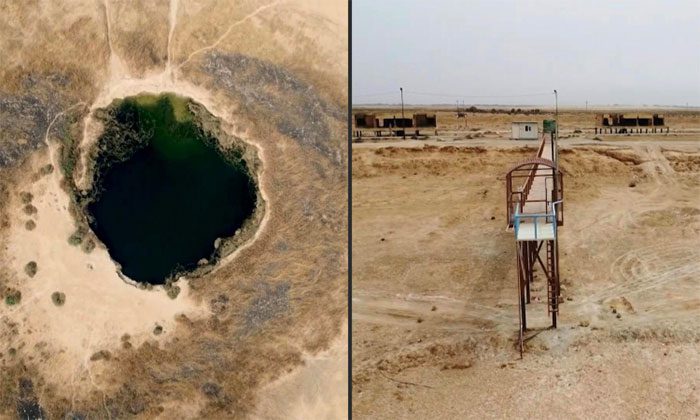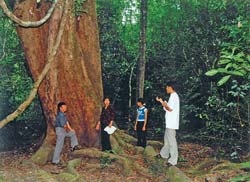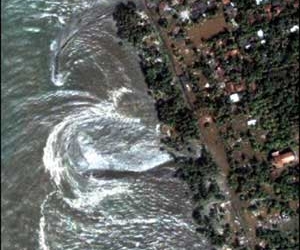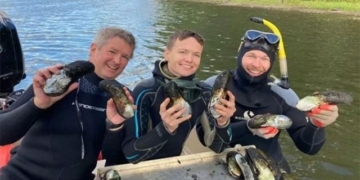Once a biodiverse wetland, the Sawa Basin has now shrunk to a small pond, surrounded by barren, arid land.
The Sawa Lake has dried up due to climate change and human activities. (Video: AFP)
The sign “No Fishing” at the edge of the desert in western Iraq, about 23 km from the provincial capital Al-Samawa in Muthanna, is one of the few remaining clues indicating this was once Sawa Lake, a biodiverse wetland that supported recreational and tourism activities.
However, human activities and climate change have transformed this area into barren land with a surface crusted with salt. The saline lake, which once spanned over 5 km2, is now reduced to a small pond connected to groundwater.
“This year, the lake has disappeared for the first time,” environmental activist Husam Subhi emphasized. “In previous years, the water area only decreased during the dry season.”

The area of the lake has shrunk to the size of a small pond.
“Sawa Lake has a special history for all residents of Samawa. I am 60 years old and grew up with the lake. I used to think I would die before it, but sadly, it has disappeared before me,” environmental activist Latif Dibes added.
According to Youssef Jabbar, head of the environmental department in Muthanna province, the water level in the lake has noticeably decreased since 2014. The main causes are drought and rising temperatures due to climate change.
“Muthanna is a desert province, frequently experiencing drought and a lack of rainfall,” Jabbar explained.
In a statement last week, the Iraqi government also pointed out that over 1,000 illegal wells for agricultural activities in the area, along with nearby cement and salt factories, have “extracted a significant amount of water from the aquifer supplying the lake.”
The Ramsar Convention on Wetlands has described Sawa as “a unique water body” because it is completely enclosed within a salt flat with no inlet or outlet.
“The lake is formed on limestone and is isolated by surrounding gypsum barriers. Its water’s chemical characteristics are unique,” the convention’s website stated.
Once a stopover for migratory birds, Sawa Lake was home to several globally endangered species such as the Eastern Imperial Eagle, Houbara Bustard, and Marble Teal, but today, all have vanished.
Rainfall in Samawah or the area near the lake is extremely low, reaching only 30% of the annual average, contributing to the decline of groundwater levels. Rising temperatures also lead to increased evaporation.
In an effort to revive Sawa Lake, authorities have banned the drilling of new wells and are working to close existing illegal wells.
“Measures must be taken, and among them, the most important is to stop the wells and industrial projects, such as the cement and salt factories near the lake. If these projects cease operations, some groundwater may return to the lake,” Jabbar stated.





















































